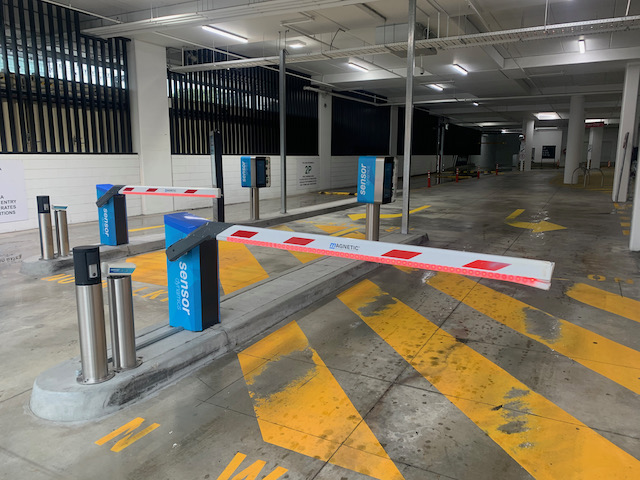How Free Parking Cost One Business Its Reputation and How Paid Parking Can Save It

Paid parking is becoming more and more prevalent in today’s retail industry, but some shopping centres are still hesitant to implement it. This is often due to a fear of backlash from their loyal customers, or they simply don’t see the need for, or value in it. This hesitance could be costing retail car park owners and the shopping centres they are linked to, millions of dollars a year, and what’s worse is, it could be costing them customers.
Take a look at the social media pages of just about any shopping centre that offers “free” parking and you’ll detect a common theme; patrons of these centres complaining about a lack of available parking and going elsewhere to do their shopping, whilst telling others to do the same.

These are not isolated incidents. It happens every day, in shopping centres across the country.
Many of the free, privately owned car parks that are experiencing these issues have put time limits in place to try to combat this exploitation.
The problem with this however, is
How Free Parking Cost One Business Its Reputation and How Paid Parking Can Save It that private parking companies have no legal authority to enforce these restrictions and patrons are clueing on. Legal loopholes mean ‘fines’ issued by shopping centres are not valid infringements and if pursued, may not hold up in court.
Private Parking Fines – Why car park owners have no authority to enforce them.
What rights do private parking companies REALLY have?
The answer: Not many
The clause under which most private parking companies claim funds from patrons is upon the understanding that anyone who uses the car park automatically enters into a contract with the owner of the property. Using this argument, private companies can on occasion, claim money as ‘liquidated damages’. This well is quickly drying up however, as courts are deaming this to be ‘deceptive’ and ruling that the private parking companies are claiming sums greater than any reasonable loss. The more private companies make these claims the more barriers the courts are creating in an effort to protect consumers.
The only way private parking companies can seek compensation from patrons misusing their car park is by going through the Magistrate’s Court. However this is often a lengthy and pointless process that can leave the parking company coming off second best. The average infringement notice amount given by a private parking company is approximately $88. When we compare this to the cost of lodging a claim for a sum of money under $10,000 in the Magistrate’s Court, which ranges from $82.50 in Victoria to $250 in Western Australia, the company stands to gain very little from taking this course of action.
Private parking companies have no legal authority… and shoppers are clueing on”
Additionally, the judicial system is stepping in, making this avenue increasingly difficult for companies. As of the 26th of August 2015, restrictions have been placed on private car parking operators in Victoria accessing an individual’s name and address from the VicRoads registration database. Without a name and address it is impossible to demand payment. The courts are also tending to rule in favour of the car park user more often. The law in Australia states that only Government bodies can issue fines. If a private parking company describes the ticket they issue as a ‘fine’, this can be seen as misleading by a court.
The Danger of Issuing Fines to Legitimate Customers
In 2012, one private parking company was taken to court over similar actions. In April 2012, the Victorian Supreme Court ordered Ace Parking and two of its officers to stop using misleading tactics and fined the company $14,500. They were found to have used tactics that violated the Fair Trading Act, including issuing fines, threatening legal action without legal authority, mimicking legitimate council and government notices, and harassing people to pay. Additionally, inflicting fines on customers is a sure fire way to lose them. Though the intention may be to create space for your customers to park, fining a legitimate customer can quickly sprout animosity towards your business and cause customers to stop visiting the shopping centre. Issuing fines to shoppers has successfully tarnished the reputation of many shopping centres across Australia.
In an effort to stop commuters and employees from nearby businesses parking in it’s car park, one small shopping centre hired a parking enforcement service to issue tickets, receiving wide spread backlash from the community. Its actions were labelled as “stupidity” by customers and as “a good way to send people elsewhere”. With all of these obstacles standing in the way of private car park operators, the value of enforcing any form of parking restriction may be heavily veiled, especially when considering the
possible loss of good standing with loyal customers. However, as we can see from the frustrated reviews from shopping centre goers all over Australia, parking time limits are essential in easing congestion and supporting businesses as they promote throughput and thus increase customer satisfaction. Essentially, if you can minimise the exploitation of your car park by patrons who are not customers of the shopping centre there will be spaces available for your valued and loyal customers.
The challenge therefore for the owners and operators of private car parks is, how to make sure that spaces are available for customers without holding any legal authority to enforce a time restriction.
The best way to tackle this problem is through the implementation of a paid parking system, with a defined free or ‘grace’ period
Grace periods promote customer throughput and act as a deterrent to staff or current non-customer car park users, who might park all day in the prime parking spaces reserved for customers. According to research conducted in 2013 for the International Council of Shopping Centres into consumer behavior in Australian shopping centres, most shoppers spend on average one to two hours in a shopping centre. This means that if a private car park imposed a two hour grace period, most of its true customers would be unaffected. The effect on the business, however, would be impossible to look past.
Some car park managers’ hesitance stems from the impression that implementing a paid parking system would hurt the shopping centres reputation more than an infringement on the window of a customer from time to time, but research shows that this is actually preferred by customers.
This is because it allows the customer to make a value calculation. The customer knows exactly what to expect and how much they will be charged, avoiding that nasty shock that is the catalyst for the shoppers’ frustrations. An installed system also allows for ticket validation. Ticket validation is one of the most effective methods when ensuring genuine customers are not affected by any implementation restrictions within the car park. This system works by having payment machines that will accept a receipt from a shop within the centre as payment for the parking.
The reason this system is so popular with car park managers and customers alike is because it can successfully combat the issue of drivers exploiting a car park and it feels fair to the customers. When customers feel they are being rewarded for their patronage it can stimulate the use of the shopping centre, as opposed to the effect of issuing an infringement, which makes the customers feel attacked and unwelcome.
The innumerable benefits of implementing a paid parking system are valuable additions to every commercial site and begin combatting the damage done by free parking immediately.
The damage done to business through free parking is reversible!



